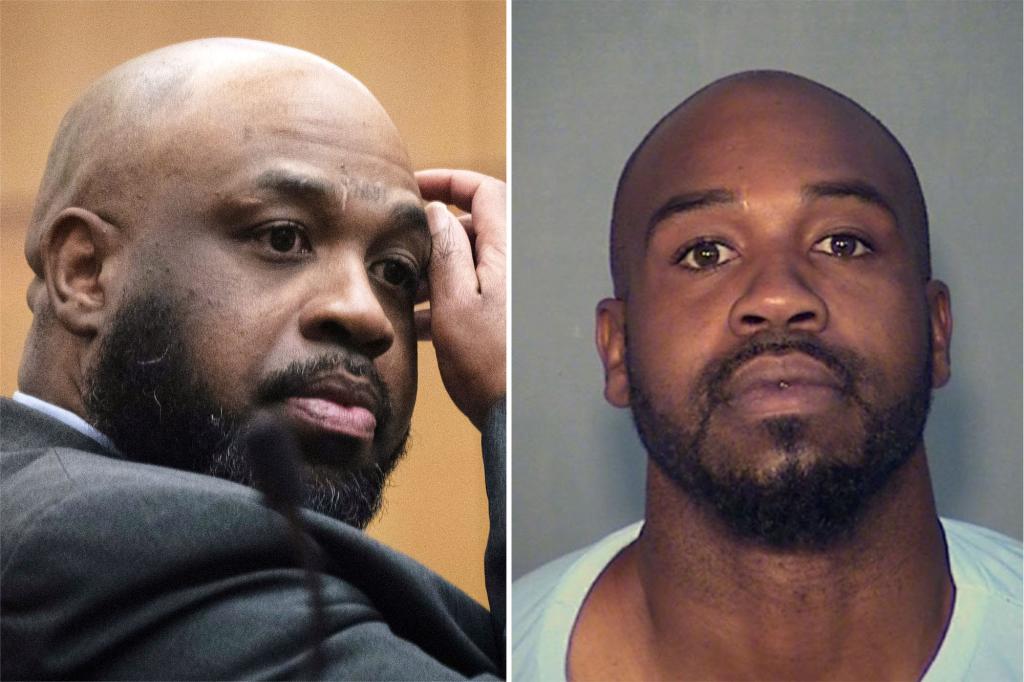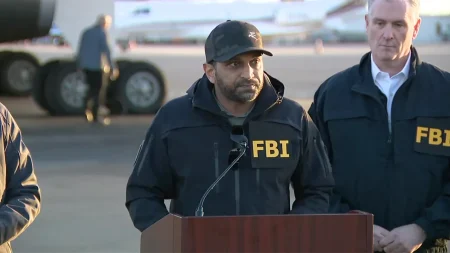Arizona Man Convicted of Eight Murders in Phoenix-Area Shooting Spree
In a gripping conclusion to a high-profile murder trial, an Arizona jury delivered a guilty verdict Thursday against Cleophus Cooksey Jr. for eight counts of murder, alongside numerous other serious charges including kidnapping, sexual assault, and armed robbery. The conviction stems from a deadly three-week shooting spree that terrorized Phoenix and neighboring Glendale in 2017. Prosecutors are now pursuing the death penalty against Cooksey, whose rampage claimed the lives of victims ranging from his own family members to complete strangers. The case, which has haunted the Phoenix metro area for years, provides a sobering glimpse into a series of senseless killings that devastated multiple families across the community.
The violence began just four months after Cooksey’s release from prison, where he had served time for a manslaughter conviction related to a 2001 strip club robbery. Unlike previous serial shooting cases in Phoenix that generated widespread fear and media attention over extended periods, Cooksey’s three-week spree in late 2017 remained largely unpublicized until his arrest. The killing spree began with Parker Smith and Andrew Remillard, who were shot while sitting in a parked vehicle. Just five days later, security guard Salim Richards was murdered while walking to his girlfriend’s apartment. The pattern of seemingly random violence continued with the separate apartment complex shootings of Latorrie Beckford and Kristopher Cameron in Glendale, creating a growing sense of unease across the metropolitan area as investigators worked to connect the cases.
Perhaps most disturbing was the case of Maria Villanueva, who never arrived at her boyfriend’s Glendale apartment as expected. Her body was discovered the following day in a Phoenix alley, partially unclothed and bearing evidence of sexual assault. Forensic analysis would later reveal Cooksey’s DNA on her body, providing a crucial link in the investigation. The deadly rampage culminated at the apartment of Cooksey’s mother, where officers responded to reports of gunfire. Upon arrival, they encountered Cooksey himself answering the door, claiming he had cut his hand and was alone in the residence. Inside, however, police discovered the bodies of his mother, Rene Cooksey, and stepfather, Edward Nunn, adding a deeply personal dimension to the string of killings that had plagued the community for weeks.
The investigation revealed a trail of damning evidence connecting Cooksey to the murders. When officers attempted to detain him at his mother’s apartment, he reportedly threatened to slit an officer’s throat. Inside the residence, investigators discovered Richards’ gun on the living room sofa, which forensic analysis later linked to three of the killings. They also found keys to Villanueva’s vehicle, and notably, Cooksey was wearing Richards’ necklace at the time of his arrest. This physical evidence, combined with DNA findings and other forensic connections, created a compelling case against the 38-year-old, who had previously described himself as an aspiring musician with no violent tendencies. Throughout the legal proceedings, Cooksey maintained his innocence, insisting the charges against him were “false accusations.”
In a revealing handwritten letter to a judge in January 2020, as his trial faced postponement, Cooksey expressed impatience to prove his innocence through a not-guilty verdict. “I am not a rapist or murderer,” he wrote, “I am a music artist.” This self-characterization stands in stark contrast to the evidence presented during trial, which painted a picture of a man who, having been released from prison just months earlier, embarked on a killing spree that claimed eight lives in less than a month. While some victims had connections to Cooksey, others appeared to be strangers targeted at random, adding to the senselessness of the crimes and leaving investigators to piece together motives that may never be fully understood.
The conviction brings a measure of closure to the families of the eight victims, though the pain of their losses remains. As the case now moves to the sentencing phase with prosecutors seeking the death penalty, the community continues to grapple with the aftermath of these tragic events. The case serves as a somber reminder of how quickly violence can escalate and the devastating impact it leaves on families and communities. For Phoenix residents who lived through previous serial killer scares, including the “Baseline Killer” and “Serial Shooter” cases of the mid-2000s, Cooksey’s conviction represents the end of another dark chapter in the region’s history—one that thankfully concluded with the perpetrator being brought to justice before more lives could be lost.









